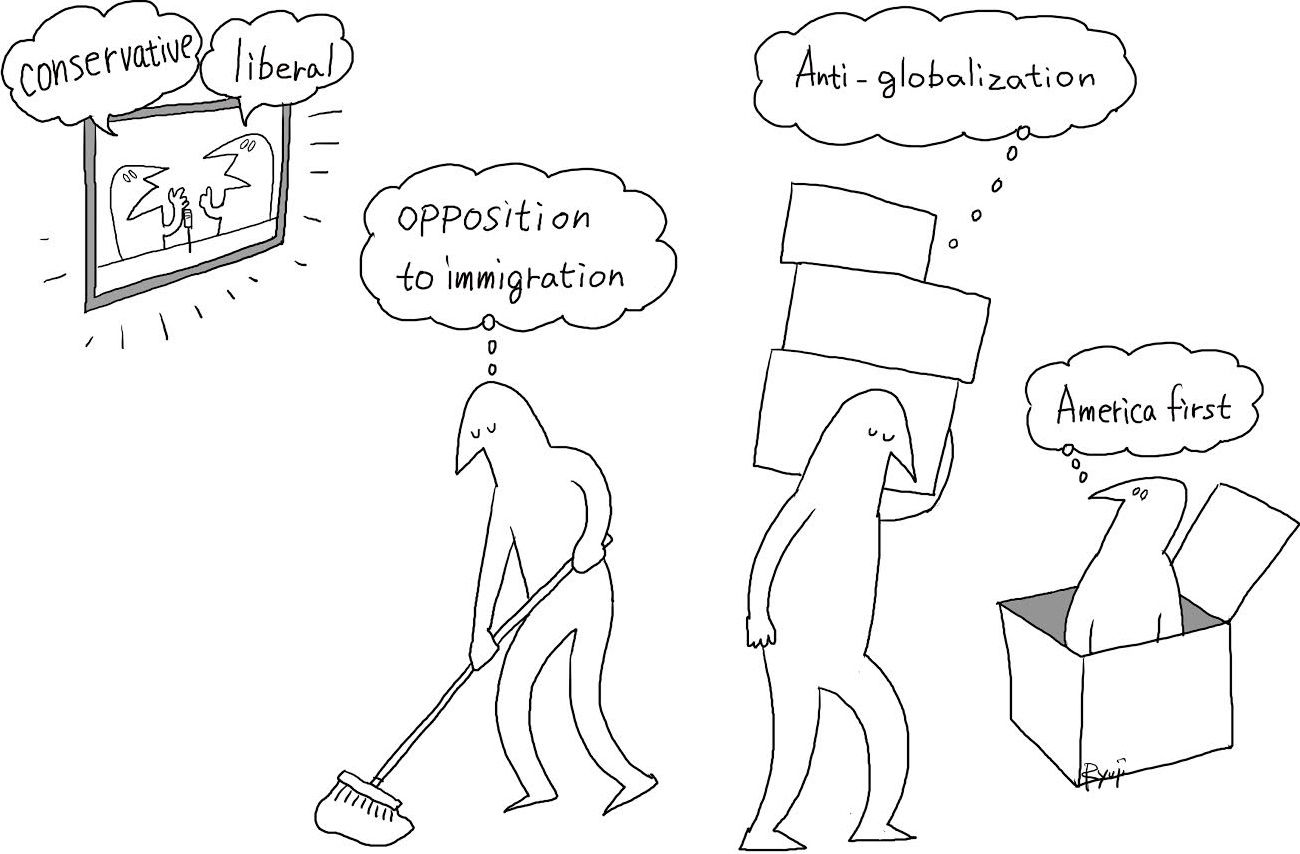Donald Trump won the U.S. presidential election on Nov. 8 by defeating the Democratic opponent Hillary Clinton, with his slogans of opposing globalization, rejecting immigrants and putting America first. Whether to pursue or abandon globalization was the biggest campaign issue, while the historical confrontation between the conservative Republicans and liberal Democrats was sidelined. Similarly, Britain's vote in June to leave the European Union had little to do with the conservative-liberal face-off between the Conservative and Labour parties, and is seen as reflecting the anti-globalization sentiments entertained by a majority of British people.
In Japan, too, rivalry between conservatives and liberals appears to have ceased to exist. When the reigns of government shifted from the Liberal Democratic Party to the then Democratic Party of Japan following the latter's Lower House election victory in August 2009, I welcomed the change as I thought Japan had at long last caught up with countries like the United States and the United Kingdom to establish a political system in which conservatives and liberals compete with each other.
In September, however, I could not help but feel quite strongly that the DPJ, which changed its name to the Democratic Party earlier this year, had completely deviated from liberalism — since all three candidates for the party's top post declared themselves conservatives.
















With your current subscription plan you can comment on stories. However, before writing your first comment, please create a display name in the Profile section of your subscriber account page.